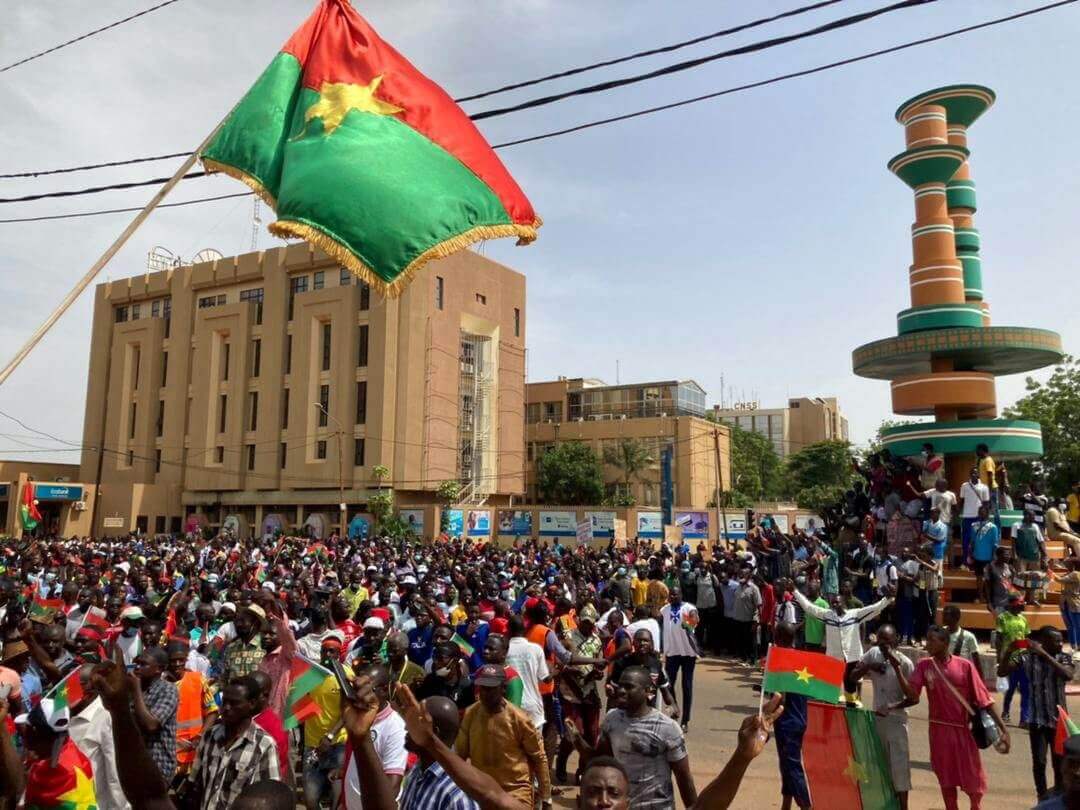On Saturday, thousands of citizens in Burkina Faso took to the streets of capital city Ouagadougou to demand that the government address the rapidly escalating Islamist insurgency in the country. This follows an incident in early June in which at least 160 people were killed in an attack on a northern village. Likewise, in May, 30 people died in another terrorist attack to the east of the country.
Burkina Faso has become a hotbed for conflict since militants seized swathes of territory in neighbouring Mali in 2012 and 2013, with attacks by jihadist groups becoming particularly frequent after 2015. The groups involved are typically affiliated with Al-Qaeda or the Islamic State.
While the French-led Operation Barkhane has sought to combat these insurgencies, in June, France announced an end to the country’s seven-year military operation in the Sahel region. Although France will ‘restructure’ its presence in the Sahel, it is generally thought that its troop withdrawal will leave an even larger vacuum for militant groups to exploit.
Against this backdrop, citizens gathered in Ouagadougou to demand “security and peace.” In fact, some even travelled hundreds of kilometres to participate in the opposition-led protests.
Much of this rise in violence has coincided with the rule of President Roch Marc Christian Kaboré, who came into power in December 2015 and was re-elected last November. Opposition leader Eddie Komboigo said at the protests: “During Kaboré’s first term, there were officially more than 1,300 deaths and 1.2 million internally displaced people,” adding, “It is feared that the second term will be worse than the first, because since the start of the year we have had more than 300 deaths.”
Although Kaboré dismissed his defence and security ministers and Wednesday, and took up those posts himself, this has evidently done little to inspire confidence in citizens.
The legitimacy of Kaboré’s rule has also previously been brought into question. Ahead of the election last November, 1,500 villages were barred from voting after 17% of voting precincts were deemed ‘unsafe’. As a result, 400,000 people were stripped of their ability to vote in a country of just 21 million people.
The regions which were ‘deemed’ unsafe are populated by citizens who were more likely to vote against the current government, given their displeasure at the Kaboré administration’s inability to tackle militant groups. Therefore, the decision to block them from voting was seen as a move to keep Kaboré in power.
Against the backdrop of the latest protests, it is clear that Kaboré has not done enough to make these areas ‘safe’. Ironically, Kaboré rose to power in 2015 following nationwide protests to oust former dictator Blaise Compaoré. Hence, there are well-placed fears that Kaboré’s stranglehold over the country’s political system may lead to a military coup, just like in Mali in last August.

